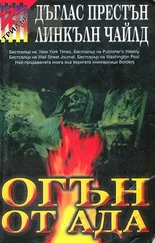“Your ‘current investigation,’” Ozmian said. His tone was flat, emotionless, like his eyes. “Let’s not waste time. Your current investigation has subjected my daughter to the vilest slanders. Not only that, but you have sullied her character in a manner by which she — from beyond the grave — cannot defend herself. I, therefore, will defend her myself.”
This was about what Harriman had expected to hear, only in a more controlled fashion. “Mr. Ozmian,” he said, “I reported the facts. Simple as that.”
“Facts can and should be reported in a fair and impartial way,” Ozmian said. “Calling my daughter a person ‘of no redeeming value’ and saying ‘the world would be better off if she were dead’ is not reporting. It is character assassination.”
Harriman was about to respond when the entrepreneur abruptly rose from his desk, stepped around it, and took a seat in a chair next to him, sandwiching the reporter between Ozmian and the woman.
“Mr. Harriman, I’d like to think I’m a reasonable man,” Ozmian went on. “If you will guarantee not to say or write another word against my daughter — if you will simply pen a few positive things about her to mitigate the harm you’ve caused — then we need say no more about it. I won’t even ask you to directly recant the scurrilous lies you’ve already bandied about.”
This was surprisingly mild, thought Harriman, even if he was offended at the implication he could be influenced like this. “I’m sorry, but I have to report the news as I see it, and I can’t play favorites because somebody’s feelings might be hurt. I know it’s not pleasant to hear, but there’s nothing I reported about your late daughter that wasn’t true.”
There was a brief silence. “I see,” said Ozmian. “In that case, let me introduce my colleague here, Ms. Alves-Vettoretto. She will explain what is going to happen if you print one more word — just one — that defames my daughter.”
Ozmian sat back just as the woman whose name he didn’t quite catch sat forward. “Mr. Harriman,” she said in a quiet, almost silky voice, “I understand that you are the founder and motivating force behind the Shannon Croix Foundation, a charitable fund for cancer research named after your late girlfriend, who died of uterine cancer.” She had a faint accent, hard to place, that gave her words a certain preciseness.
Harriman nodded.
“I further understand that the fund — with the support of the Post — has been quite successful, having brought in several million dollars, and that you are on its board.”
“That’s right.” Harriman had no idea where this was going.
“Yesterday, the fund had just over a million dollars in its account — a business account that, by the way, is held in the name of the foundation, with you having fiduciary responsibility over it.”
“What of it?”
“Today, the account is empty.” The woman sat back again.
Harriman blinked in surprise. “What—?”
“You can check for yourself. It’s quite simple: all the money from that account has been transferred to a numbered bank account in the Cayman Islands, established by you, with your signatures and videotaped presence and clerks who can all testify as to your presence there.”
“I’ve never even been to the Cayman Islands!”
“But of course you have. All the flights, your passport number, a beautiful electronic trail has been created especially for you.”
“Who’s going to believe that?”
The woman went on patiently. “All the money has been transferred from the foundation’s account to your personal, offshore account. Here is a record of the transaction.” She reached into a slender crocodile briefcase lying on an adjacent table, removed a piece of paper, and held it in front of Harriman for several seconds before returning it.
“No way. That’s crap. That’s not going to hold up!”
“Indeed it will. As you might imagine, our company has many fine programmers, and they created a most lovely digital theft leading back to you. You have one week to publish a positive story about Grace Ozmian. We’ll even furnish you with a ‘fact sheet’ containing all the necessary information to make your job easier. If you do that — and if you promise not to write about her anymore after that, ever — we’ll put the money back and erase the financial trail.”
“And if I don’t?” Harriman asked in a strangled voice.
“Then we’ll simply leave the money where it is. Soon, it will be noted the money is missing; and then, a reasonably astute investigation will find the trail and uncover the owner of that numbered bank account. Of course, if the investigators have any trouble, we’ll be glad to give them a little anonymous help.”
“This...” Harriman paused to catch his breath. “This is blackmail.”
“And you simply do not have the knowledge, or the resources, to undo it. The clock is ticking. At any moment the missing money will be noted. You’d better hurry up.”
Ozmian shifted in his chair. “As Ms. Alves-Vettoretto says, it’s really quite simple. All you have to do is agree to our two conditions — neither of which is onerous. If you do, everyone stays happy — and out of prison.”
Harriman could barely believe what he was hearing. Five minutes ago, he’d been a lionized reporter. Now he was being framed as an embezzler, at the expense of his own deceased girlfriend. As he sat there, barely able to move, a dozen scenarios — none of them good — paraded before his mind. With a shudder that racked his entire frame, he realized that he had no choice.
Silently, he nodded.
“Excellent,” said Ozmian, still without allowing any expression to form on his face. “Ms. Alves-Vettoretto here will give you the bullet points for the article about Grace.”
The woman on Harriman’s other side reached into her briefcase again, pulled out a piece of paper, and handed it over.
“And now that concludes our business.” Ozmian stood up and walked back behind his desk. “Ms. Alves-Vettoretto, would you please escort Mr. Harriman to the elevator?”
Two hours later, back in his apartment, Harriman lay on the living room sofa, from which he had not moved since returning from the DigiFlood tower and checking online to discover that the account was, indeed, empty. His beautiful career lay hanging in the balance, victim of a slick and heinous blackmail scheme. And his beautiful theory lay in ruins. Of the two, the former was the worse: as much as he hated the idea of losing the story of his career, he hated the thought of the disgrace more — the shame and infamy of everyone believing he had embezzled from his own dead girlfriend’s memorial fund. That humiliation and scandal was almost worse than the stiff prison term that surely would result.
But what could he do? How was he going to frame this Grace Ozmian story her father was insisting on, this sudden about-face, and make it look credible? Maybe he could write some human-interest piece, pointing out the good things in Grace’s life, trying to position it as attempting a laudable balance after all the bad press she’d gotten, the moral being that even the worst villains had a good side. But that wouldn’t go down well with his editor at the Post , a newspaper that so loved their villains. He likely wouldn’t even be able to get it past his editor. And the thought of succumbing to blackmail made him feel sick; his whole being revolted at knuckling under to that arrogant billionaire bastard.
The longer he thought about it, the more Bryce Harriman, the newly minted celebrity, the darling of the papers and the airwaves, began to reassert himself. Scurrilous lies , Ozmian had said. Character assassination. Well, two could play that game. This blackmail of Ozmian’s — perhaps it could be a story in itself. He, Harriman, had the backing of the entire might of the Post behind him, from Paul Petowski all the way up to Beaverton, the publisher. More than that — he had the backing of the people of New York as well.
Читать дальше
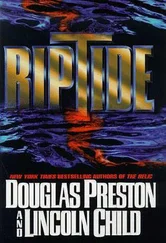

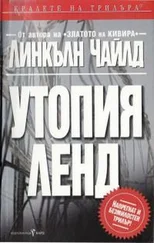
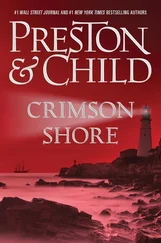

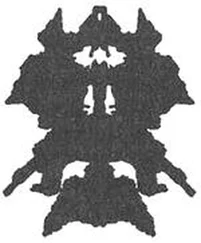


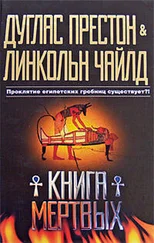
![Линкольн Чайлд - Стихи для мертвецов [litres]](/books/396536/linkoln-chajld-stihi-dlya-mertvecov-litres-thumb.webp)
